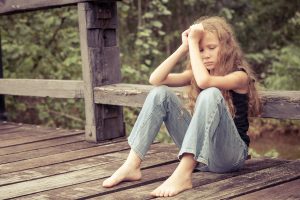Childhood abuse
What is childhood abuse?
Child abuse can occur in many different ways. This can include physical, emotional and sexual abuse, as well as neglect.
In many cases, people experience more than one type of abuse.
Often, people abuse others because they want power and control over them. If you were abused as a child, it’s important to remember that it’s not your fault or because of anything that you did.

Abusive behaviour towards children is always wrong and never the child’s fault.
We know that around one in four adults, both male and female, has experienced abuse as a child. Some find that with the support of their family and friends they are able to move on from their childhood abuse.
But for many survivors, talking about what happened to someone who is professional, caring and independent from an organisation that helps survivors – such as Voice – is an essential step.
If you’d like to speak about something that happened to you as a child, speak to Voice now.
We can help you to develop the coping strategies you may need to manage the overwhelming feelings that the impact of childhood abuse can have in adulthood.
We also work with specialist agencies to make sure that you get all the help that you need.
How should I feel following abuse as a child?
It’s not easy to know exactly how you will feel as an adult living with past experiences of being abused.
You may have reported the abuse as a child, lived with it in secret for years, or only recently remembered the abuse you experienced.
However, it’s possible that at some time in your adult life your memories will come back, which can lead to some very intense emotions.
Different life experiences – such as bereavement, becoming a parent, experiencing an unrelated crime, moving to a new area, and current news stories in the media – can trigger these emotions.
Emotional responses:
Not everybody who has experienced childhood abuse will also experience emotional or mental health difficulties. However, it’s estimated that over 50 per cent of people may have the following symptoms that last into adulthood:
- Anxiety;
- depression;
- post-traumatic stress;
- sleep disorders; and
- self-harm and/or suicidal thoughts.
Physical health
Childhood abuse is often associated with poorer physical health in adulthood. You may find it more difficult to go to your local GP, hospital or dentist to get help for general medical issues or a check-up because of not wanting to take part in physical examinations, or not wanting to ask for advice.
What can I do if I’m feeling the effects of childhood abuse?
Childhood abuse can be particularly difficult to deal with on your own. If you’re struggling with anything, talk to Voice – we’re trained professionals experienced at dealing with people just like you who have suffered as a child.
We can help you to process your experiences and move on. Voice is a free, confidential service, available regardless of whether you have reported a crime or not and regardless of what happened, or when.
Alternatively, talk to someone you trust. Many survivors find that talking to a specialist agency or independent person, such as a GP, is a first step to understanding what has happened, and working out how to move forward.
How can Voice help me?
We believe that everyone who has experienced childhood abuse should be able to get the help and support they need that will empower them to recover from the impacts.
We don’t just help people who’ve recently been abused – we are here to support both men and women weeks, months and years after the abuse took place.
All of our services are confidential, free and available to anyone who’s been abused. Read our case study here.
